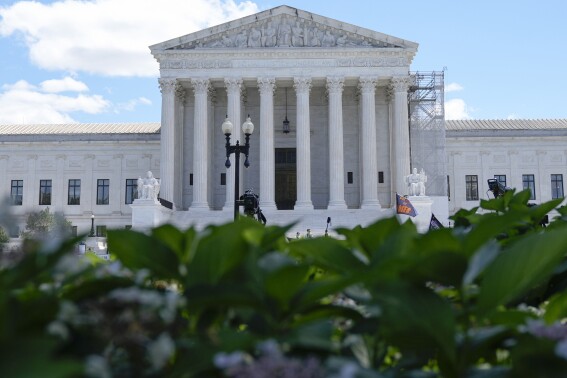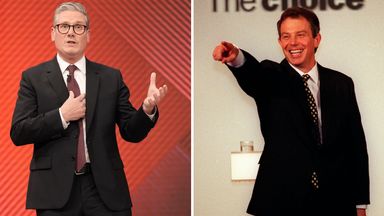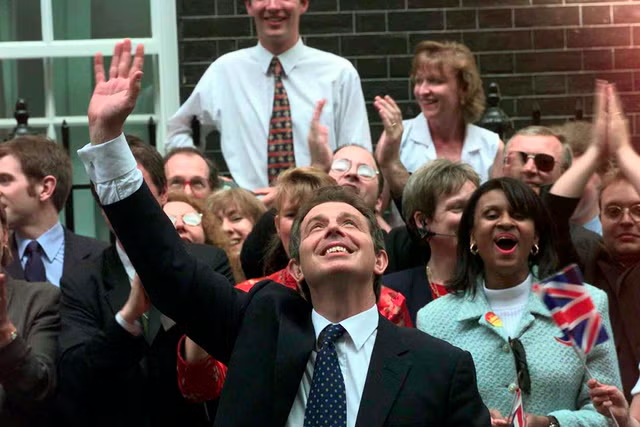Support truly
independent journalism
Support Now
Our mission is to deliver unbiased, fact-based reporting that holds power to account and exposes the truth.
Whether $5 or $50, every contribution counts.
Support us to deliver journalism without an agenda.

Louise Thomas
Editor
Rishi Sunak is set to begin a 48-hour blitz around the country with a desperate final appeal to voters to support him in order to “stop a Labour supermajority”.
The prime minister will kick off a final push on the last two days of a dramatic general election campaign, with a speech claiming that just 130,000 voters could make the difference.
He told demoralised supporters and party activists to remember the spirit of the England football team pulling level in the 95th minute on Sunday, saying: “It’s not over until it’s over.” It comes as:
- Sir Keir Starmer starts his own final push in the key battleground of the Midlands
- A leading pollster warned the result will be much closer than the polls seem to indicate
- Tory MPs in the North and Midlands said they believe they are in close fights and can win
- Labour privately warned the polls may have made their supporters complacent
- Support for Nigel Farage’s Reform UK appears to be ebbing

In a speech on Tuesday as he fires up his battle bus for a whistle-stop tour, the prime minister will say: “The outcome of this election is not a foregone conclusion. If just 130,000 people switch their vote and lend us their support, we can deny Starmer that supermajority.
“Just think about that: you have the power to use your vote to prevent an unchecked Labour government.
“So we must redouble our efforts in these final days, and deliver the strongest Conservative voice in the next parliament. We are fighting for the future of our country, and every door we knock on, every leaflet we deliver and every call we do will make a difference.”
Mr Sunak will point out that “a huge number of seats” in this election “will be decided by just hundreds of votes”.
He will add: “So, every vote we move will have an impact, and make it more likely that your Conservative candidate is returned to parliament so that they can be your voice, represent your values and stand up for you. And prevent Labour from rewriting the rules so that they can stay in power for decades.”
It comes after he tried to whip up concerns about defence under a Labour government, just as new figures revealed the Tories cut 23 army regiments over the course of their 14 years in power.

But Mr Sunak’s analysis that the election is much closer than many believe it to be is supported by leading pollster and Conservative peer Robert Hayward.
Lord Hayward correctly predicted the Tory victory in 1992, despite the polls suggesting that Labour was going to win power. He also predicted a victory for the Conservative Party in 2015, and its failure to win in 2017, in spite of what the polls were saying.
He now believes the polls are wrong again, and is particularly critical of MRP polls, which claim to be more accurate than others.
He said: “I see no evidence, broadly, that the polls are any better now. The difficulty they face is that you have a volatile electorate.
“We’ve got large numbers of undecideds, so it makes it very difficult to be sure as to how accurate the polls are, and I think they are inaccurate. I think they are overestimating the Labour Party. They’re underestimating the Conservatives. Some have overestimated Reform.
“I think, having said that, the errors are not going to mean that it’s anything other than a clear Labour majority – but there is still a lot to fight for, and a great deal of uncertainty.”
Lord Hayward said Labour may fail to gain seats in some parts of the North and the Midlands, because traditional support for the party among Muslim voters has switched to Muslim independent candidates.
He also believes the problem of racists supporting Reform UK has hit that party’s vote share, which he believes will top out at around 13 per cent and is now falling.
He added: “There will be parts of the Reform vote in places like Lincolnshire, which might have been strong but will be offended at the suggestion that they are actually racist, and will therefore not necessarily vote Reform. They might all go back to the Tories, but I think there are parts of the country where that sort of thing will be more damaging than others. Three days out, Reform’s vote is not stable and is dropping.”

Lord Hayward was dismissive of the MRP polls.
He said: “These are supposedly authoritative indications, but ... you have MRP polls suggesting the Tories are going to get 50 seats, 100 seats and 150 seats, all within 24 hours of each other. That’s a 300 per cent inaccuracy.
“But the ultimate MRP idiocy is Exmouth and Exeter East, where MRP polls have suggested that four different political parties are going to win the seat.”
He also notes that the polls were “not borne out” in the local elections, where the Tories easily outperformed their predicted results, and that they have also been confounded by a series of council by-elections in the last few months.
Lord Hayward’s analysis is supported by feedback from Conservatives in the so-called red wall areas in the North and Midlands.
In the North East, Tees Valley mayor Ben Houchen, who held on in May despite what the polls suggested, told The Independent: “It’s pretty positive. I’m hopeful if our data is right.”
A number of Tory MPs in the North West, Midlands and Yorkshire believe they can hold on, including in one constituency where the bookmakers are quoting 10/1 on a Conservative victory. The polls would suggest they have no chance.
Bassetlaw MP Brendan Clarke-Smith, who thinks his seat is too close to call, has suggested that Reform UK are picking up more Labour voters in his area.
This is backed up by a JL Partners poll that claims that Reform UK is now taking 7 per cent of Labour’s 2019 vote, a statistically significant increase from 3 per cent last week.
However, the Conservatives are far more gloomy about the south of England – the so-called blue wall of traditionally safe Tory seats – where they expect to suffer significant losses, including potentially a number of cabinet ministers, headed by chancellor Jeremy Hunt in Surrey.
Candidates in seats where the party has a majority of less than 10,000 have been told to go and help those with larger majorities instead of trying to defend their own seats.
However, it is understood that Labour is “nervous” about the result, with so many undecided voters.
Polling by Techne UK for The Independent last week showed that a third of voters have described themselves as either “won’t vote” (24 per cent) or “undecided” (9 per cent). Postal voting has already begun, but more than three-quarters of people who intend to vote will not do so until Thursday at the polling station.
Disclaimer: The copyright of this article belongs to the original author. Reposting this article is solely for the purpose of information dissemination and does not constitute any investment advice. If there is any infringement, please contact us immediately. We will make corrections or deletions as necessary. Thank you.



